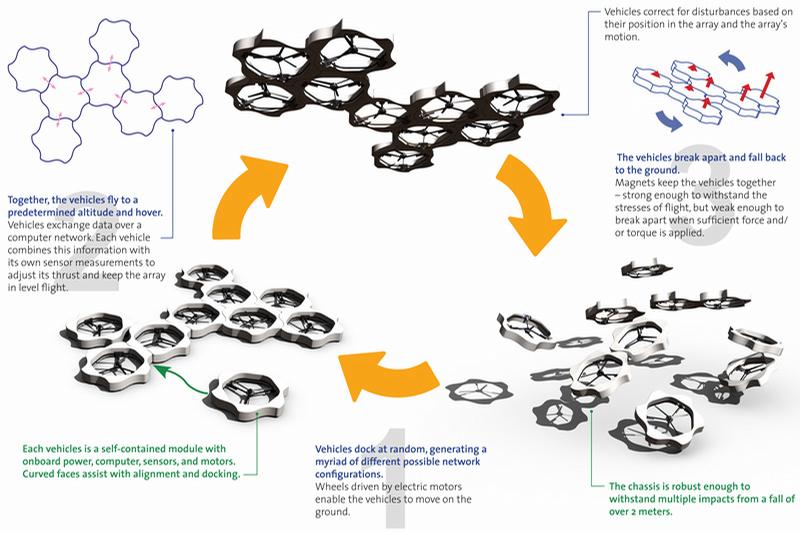Distributed Flight Array
Individual vehicles self-assemble, coordinate, and take flight
We’ve all heard the expression: “The whole is greater than the sum of its parts.” Alone, these vehicles can drive about on the ground, but it is not until they assemble that they are able to fly.
The Distributed Flight Array is a flying platform consisting of multiple autonomous single propeller vehicles that are able to drive, dock with their peers, and fly in a coordinated fashion. Once in flight the array hovers for a few minutes, then falls back to the ground, only to repeat the cycle again.
Distributed Estimation and Control
The individual vehicles of the Distributed Flight Array have fixed propellers that can lift them into the air, but the resulting flight is erratic and uncontrolled. Joined together, however, these relatively simple modules evolve into a sophisticated multi-propeller system capable of coordinated flight. The task of keeping the array in level flight is distributed across the network of vehicles. Vehicles exchange information and combine this information with their own sensor measurements to determine how much thrust is needed for the array to take-off and maintain level flight. If the array’s leveled flight is disturbed, each vehicle individually determines the amount of thrust required to correct for the disturbance based on its position in the array and the array’s motion.
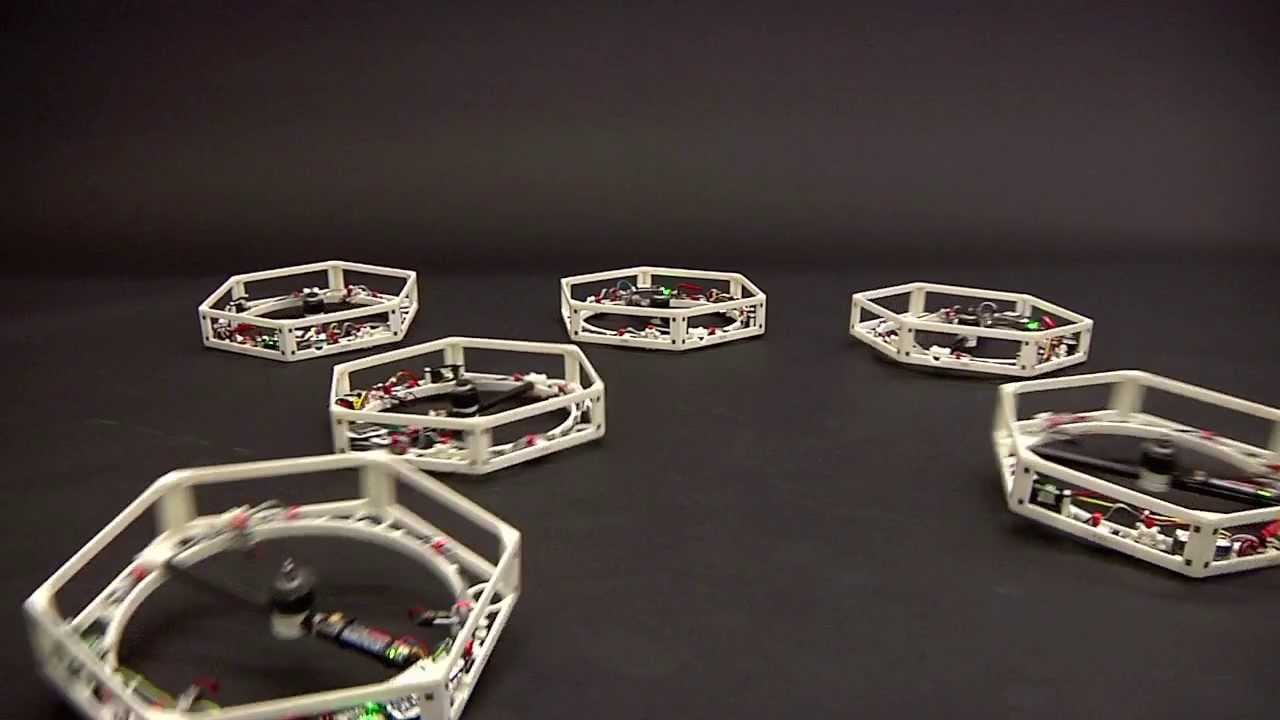
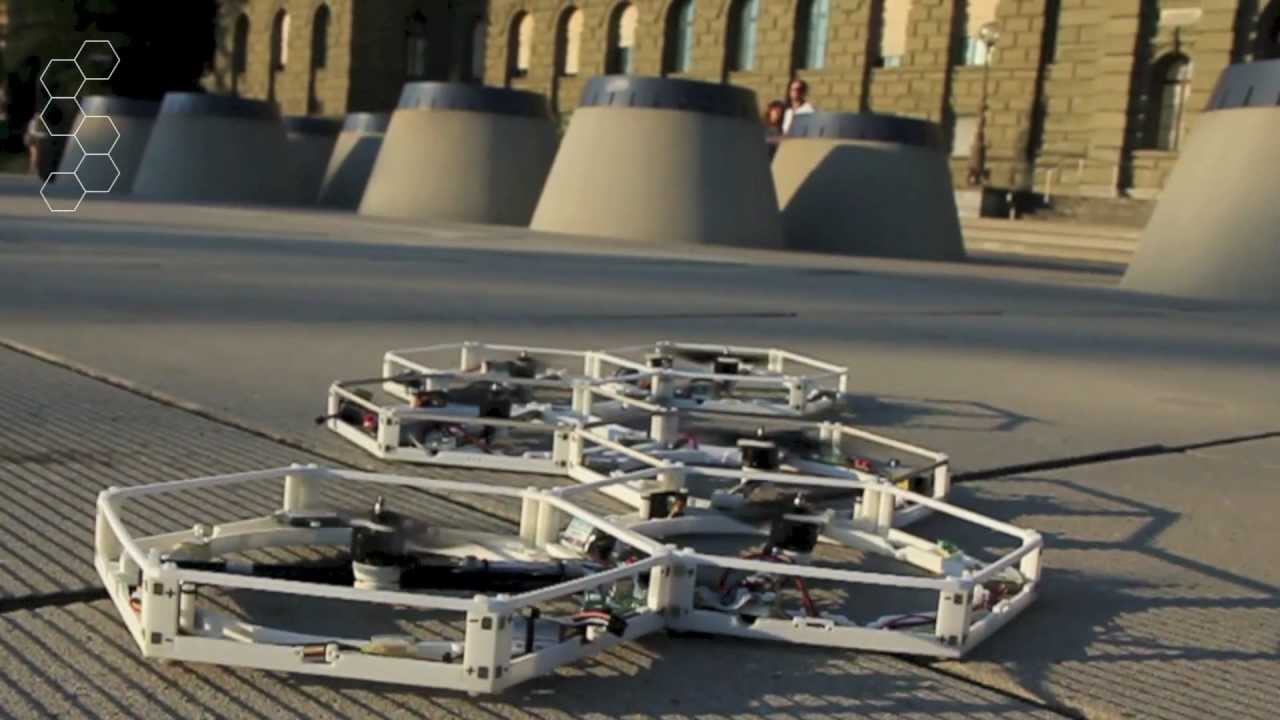
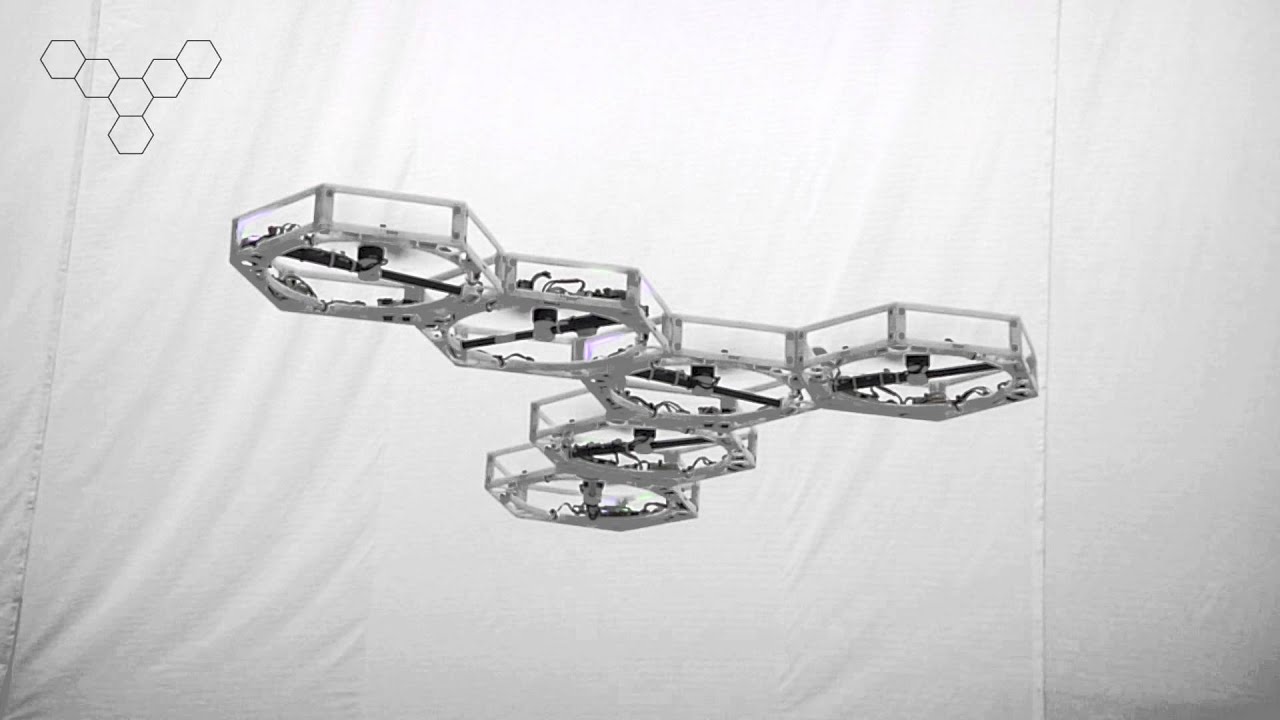

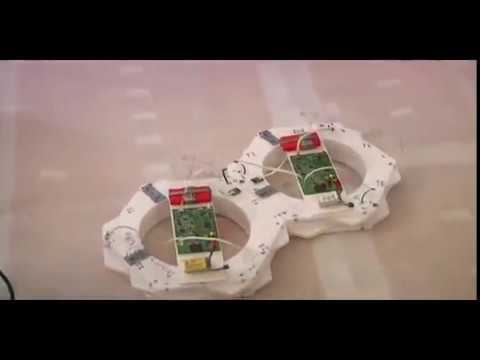
Below is a list of past projects and participants:
Master Thesis
- Miguel Picallo Cruz, Parameterized Control Methodology for a Modular Flying Robot, 2012
- Jürg Weber, Towards a Modular Battery Charging Station, 2011
- Maximilian Kriegleder, State Estimation of the Distributed Flight Array, 2010-2011
- Alireza Ramezani, The Distributed Flight Array, 2009
Semester Project
- Patrizio Simona, Firmware for the Distributed Flight Array based on a RTOS, 2014
- Angela Botros, Robust Distributed Network Localization Using Noisy Range Measurements, 2013
- Paul Beuchat, Decentralized H2-Control of the Distributed Flight Array, 2013
- Sundara Tejaswi Digumarti, Self-assembly of the Distributed Flight Array, 2013
- Clemens Fischer, Outlier Detection, 2012
- Andreas Michel, Infrared Range Sensors Modeling and Calibration, 2011
- Corsin Gwerder, Reconfiguring Distributed Flight Array Topology, 2011
- Simon Dössegger, A Model-Based Procedure to Determine the Flight Control Parameters of the Distributed Flight Array, 2011
- Aaron Coulin, Literature Review of Altitude and Attitude Sensors, 2011
- Andreas Lauber, Flight Motor Test-Bench, 2010
- Daniel Eberli, Drive Simulator for the Distributed Flight Array, 2010
- Luzius Brodbeck, Drive Simulator for the Distributed Flight Array, 2009
Bachelor Thesis
- Julian Surber, State Estimation of the Distributed Flight Array from Range Measuremets to Anchors on the Ground, 2013
- Jan Okle, Localization of Distributed Flight Array Modules on the Ground, 2013
- Patrizion Simona, A Ground Station for the Distributed Flight Array Based on the Robot Operating System, 2013
- Christof Dubs, Design and Implementation of a Flipping Mechanism for a DFA Module, 2011
- Aaron Coulin, Implementation of a Digital 3-Axis Compass for Absolute Orientation, 2011
- Raphael Wüest, Solar Cell Power and Sensing, 2009
Studies on Mechatronics
- Jan Okle, Mobile Robot Platforms, 2013
- Patrizio Simona, Review of Broadcasting Methods for Ad Hoc Networks, 2013
- Christoph Kammer, Wireless Power Supply for the Distributed Flight Array, 2010
- Raphael Shottenhaml, Inter-module Communication for the Distributed Flight Array, 2010
!And Yet it Moves
- Francesco Crivelli, Edward Ho, Claudio Marforio, Caterina Vitadello, Ville Widgrén, Martin Widmer, Filip Wieladek, and Daniel Wolfertshofer, The Distributed Flight Array, 2008-2009
Hilfsassistent
- Mahdi Asadpour, Software Development, 2010-2011
Summer Internship
- Danylo Malyuta, Hardware Development, 2014
- Sneh Vaswani, Hardware Development, 2010
A special mention goes to Frédéric Bourgault and Matthew Donovan who are no longer at the institute, for their contribution to the design of the modules (rev. 1) and thoughtful discussions.

